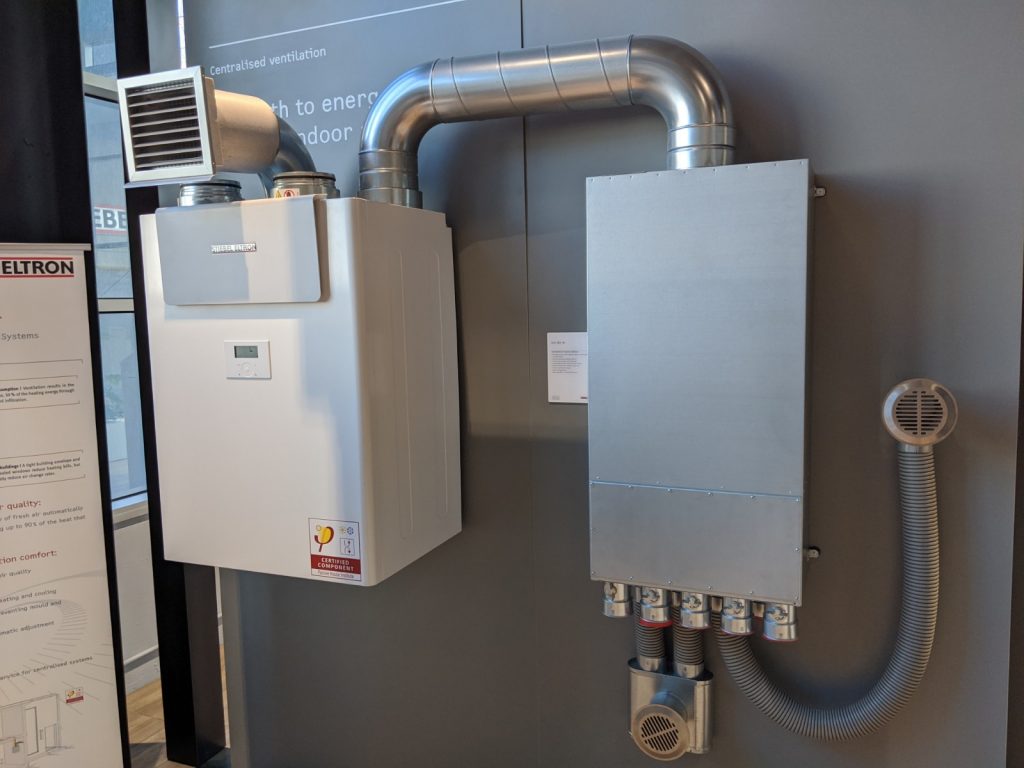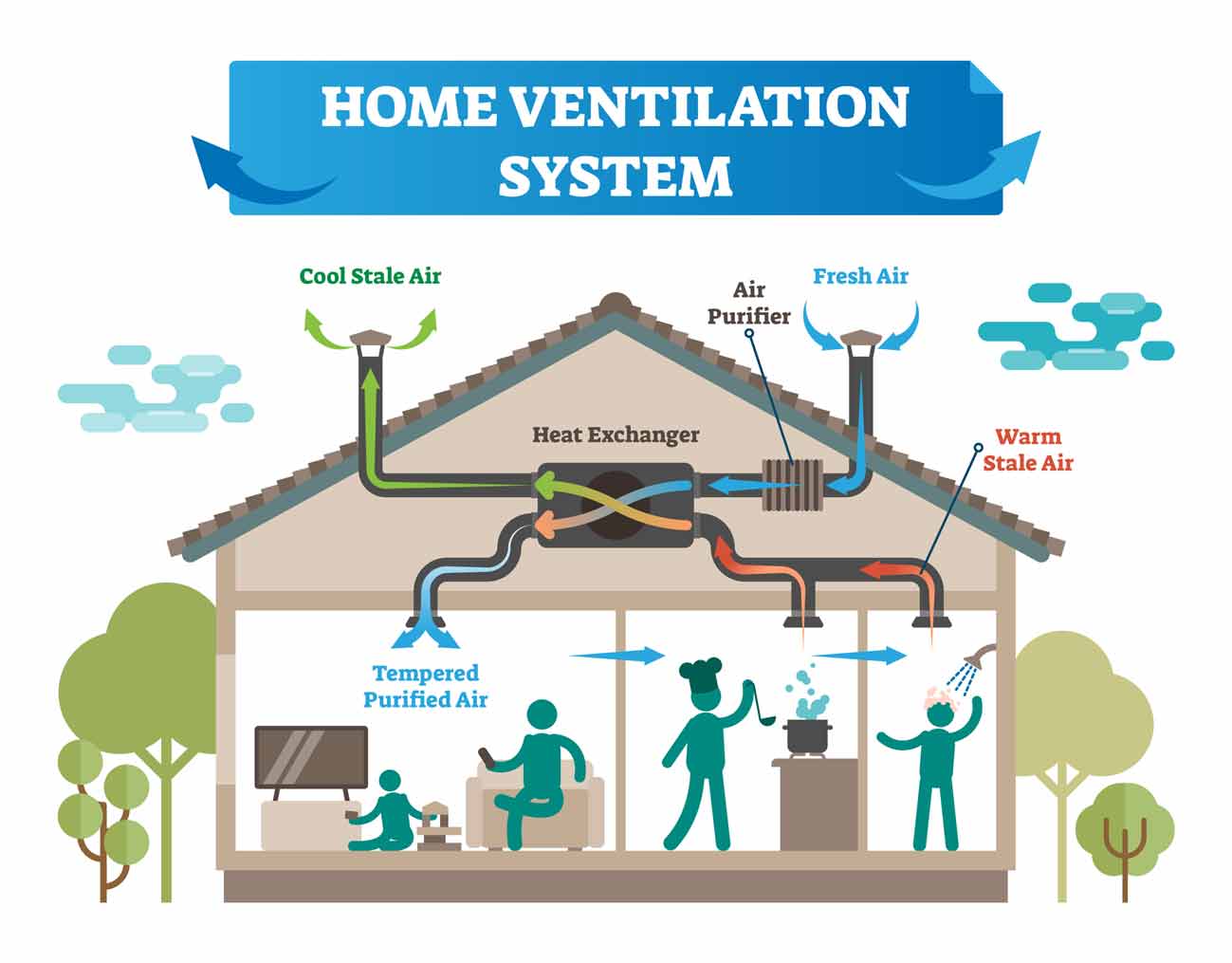Simple Tips to Maximize HRV Performance
Wiki Article
Exploring the Conveniences of Heat Recovery Ventilation for Energy Performance in Homes
Heat Recovery Ventilation (HRV) systems offer property owners a functional approach to enhancing energy effectiveness. By reclaiming heat from outward bound air, these systems can significantly reduce heating and air conditioning costs. Furthermore, they give a consistent supply of fresh air, improving indoor air quality and comfort degrees. As homeowners take into consideration sustainable options, understanding the nuances of HRV systems comes to be progressively vital. What elements should one assess before making such a financial investment?Comprehending Heat Recovery Ventilation Solutions

Exactly How HRV Boosts Indoor Air High Quality

Power Savings: The Monetary Advantages of HRV
Maximizing power performance, heat recovery ventilation (HRV) systems offer substantial financial benefits for property owners. By recuperating and reusing warm from exhaust air, HRVs substantially lower home heating and cooling expenses. This innovation can bring about power cost savings of up to 30%, depending on environment and use patterns. Property owners frequently observe decreased utility bills quickly after setup, making HRVs an economically smart investment gradually. Additionally, several regions offer incentives or refunds for energy-efficient upgrades, further enhancing the monetary charm. As energy rates remain to climb, the cost-effectiveness of HRVs becomes progressively clear. Generally, the incorporation of HRV systems not just advertises power effectiveness but also contributes to long-lasting economic savings for homes.The Ecological Influence of Heat Recovery Ventilation
A considerable ecological benefit of heat recovery ventilation (HRV) systems exists in their ability to decrease total energy usage. By redeeming heat from exhaust air and moving it to incoming fresh air, HRV systems decrease the demand for energy-intensive heating and cooling down techniques. This decrease in energy demand adds to decrease greenhouse gas discharges, as less fossil fuel is required to maintain comfy interior temperatures. In addition, HRV systems boost interior air high quality by efficiently trading stale air with fresh outside air, lowering reliance on mechanical cooling systems that can harm the atmosphere. In general, the execution of HRV systems supports lasting living practices and aligns with international efforts to battle environment modification by advertising power efficiency in household setups.
Choosing the Right HRV System for Your Home
Exactly how can home owners ensure they select the appropriate heat recovery ventilation (HRV) system for their requirements? First, they must assess their home's dimension and design, as these elements affect air movement demands. Next off, reviewing the system's performance ratings is vital, as higher scores indicate much better efficiency and power cost savings. Homeowners ought to likewise think about setup and upkeep expenses, comparing various brand names and designs for worth. Additionally, it is very important to evaluate noise levels, as some systems operate more silently than others. Consulting with heating and cooling experts can supply customized referrals based upon particular home conditions. Finally, analyzing user testimonials and warranties can aid in making an informed choice, guaranteeing that the selected HRV system efficiently improves interior air top quality and energy effectiveness.Regularly Asked Concerns

How Often Should I Clean or Keep My HRV System?
The regularity of cleansing or preserving a HRV Heat Recovery Ventilation warmth recuperation air flow (HRV) system commonly depends upon use and ecological aspects. Generally, it is suggested to carry out upkeep every 6 months to assure peak efficiency and air top quality.
Can HRV Equipments Help Decrease Humidity Levels Inside Your Home?
HRV systems can efficiently decrease indoor humidity levels by trading stale, humid air with fresh, drier air from outdoors. HRV Heat Recovery Ventilation. This process aids keep a well balanced indoor atmosphere, improving comfort and protecting against moisture-related concerns
What Is the Life expectancy of a Common HRV System?
The life expectancy of a normal heat recovery ventilation (HRV) system differs, normally lasting in between 10 to 15 years. Normal maintenance can expand its effectiveness and functional life, making sure peak performance throughout its use period.Exist Any Noise Concerns With HRV Systems?
Noise problems with HRV systems can arise, particularly from follower procedure. Nonetheless, many modern-day units are made to minimize sound levels, ensuring they run silently while keeping effectiveness, which addresses prospective disruptions in living settings.Can I Install an HRV System Myself, or Do I Need a Professional?
The specific contemplated whether to set up the heat recovery ventilation (HRV) system directly or work with an expert. Generally, while do it yourself installation is feasible, knowledge guarantees appropriate capability and compliance with local building ordinance, boosting system effectiveness.Report this wiki page